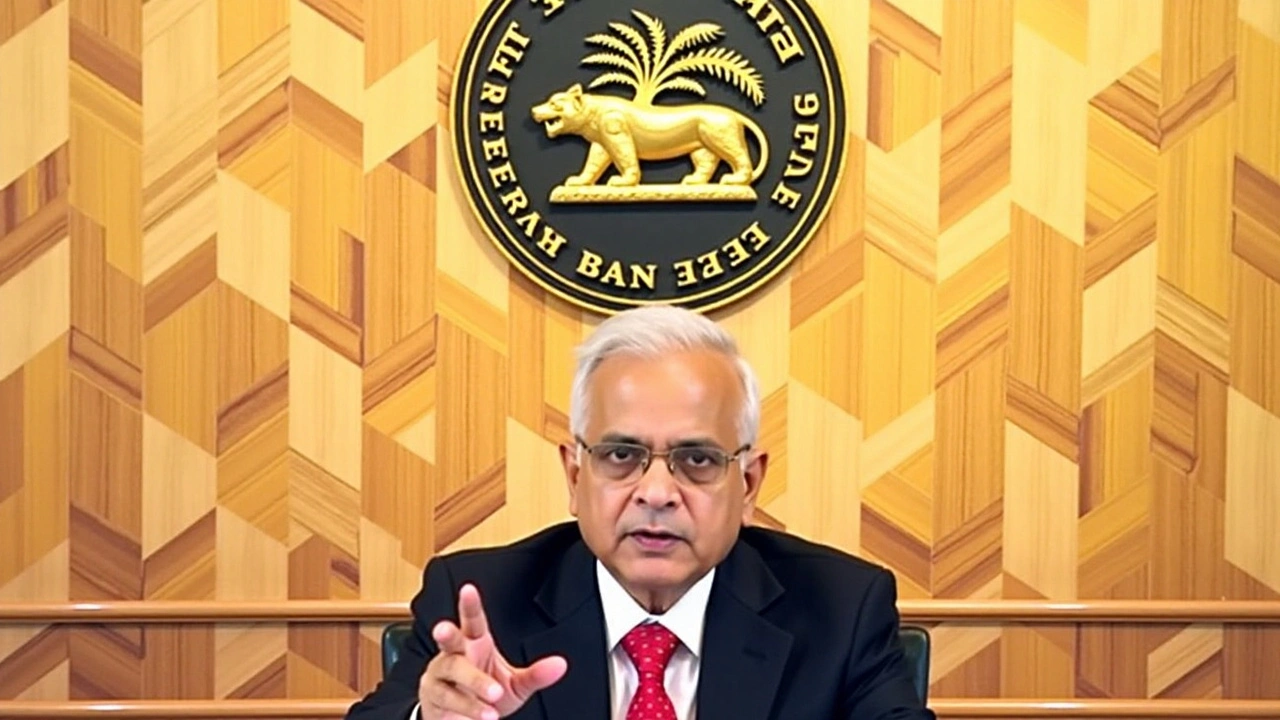India's Strategic Approach to De-Dollarization Amidst BRICS Pressure
In a rapidly evolving global economic landscape, India's decision to maintain its reliance on the US dollar amidst the BRICS bloc's move towards de-dollarization presents a fascinating illustration of balancing national interests against global pressures. India's Finance Minister Nirmala Sitharaman and Reserve Bank Governor Shaktikanta Das recently reiterated that India has no immediate plans to move away from the dollar, emphasizing economic pragmatism over ideological shifts. This stance is especially noteworthy given US President-elect Donald Trump's threats to impose substantial tariffs on BRICS countries if they further pursue their de-dollarization ambitions. The BRICS bloc, comprising Brazil, Russia, India, China, and South Africa, has been vocal about reducing dependency on the dollar, with Russia and China leading the efforts to develop alternatives.
The Economic Imperatives
For India, the decision to not aggressively pursue de-dollarization is deeply rooted in economic imperatives. The country's substantial trade with the United States, alongside existing market dynamics, necessitates a stable relationship with the dollar. Governor Shaktikanta Das highlighted India's focus on bolstering bilateral trade through local currencies while remaining cautious about intentionally reducing dependency on the US currency. A move towards de-dollarization without strategic foresight could have rippling effects on India's economy, potentially hampering growth and investment. India's external affairs minister, S. Jaishankar, also alluded to the risks of decoupling from the dollar, labeling it contrary to India's economic interests.
Geo-Political Considerations and Stability
The geopolitical landscape further complicates India's stance on de-dollarization. One significant concern is the potential strengthening of China's influence in global affairs if BRICS pushes ahead with diminishing the dollar's dominance. China, with its robust economy and strategic initiatives like the Belt and Road, poses a conceivable threat to regional equilibria and could leverage de-dollarization to expand its economic clout. As a counterbalance, India's reluctance to discard the dollar aligns with ensuring regional stability, preventing any single power from substantially skewing economic balances.
Moreover, India's depth in diplomatic networks also plays a crucial role. Engaging in de-dollarization could strain relations not only with the United States but could lead to complications in trade dealings and international engagements, potentially alienating allies who continue to operate within the dollar economy. India's commitment to preserving a stable economic relationship is evident, recognizing the intricate web of trade dependencies and diplomatic dialogues.
BRICS Unity and Divergence
The diverging approaches within the BRICS bloc underscore the complexities of operating within multilateral frameworks facing diverse national agendas. While the bloc is unified by shared interests in many areas, de-dollarization presents a point of contention, highlighting varied economic dependencies and political strategies. Each member nation approaches the issue with its considerations, illustrating the multifaceted nature of international alliances. As BRICS nations advance discussions over alternatives to the dollar, India's cautious stance portrays its selective engagement with global trends, prioritizing national growth trajectories while aligning with global economic realities.
Looking Forward: India's Economic Trajectory
By staying the course and not prioritizing de-dollarization, India continues to walk the tightrope between global economic participation and catering to domestic priorities. The narrative moving forward will likely emphasize mutual trade agreements, leveraging local currencies for bilateral deals without dismantling the established dollar-based systems. India's calculated approach indicates its readiness to engage with evolving global trends, provided they align with its growth and stability metrics. The future may hold a shift towards a multipolar currency regime, but India's current trajectory underlines measured, deliberate participation rather than rapid shifts.
As the global economic environment undergoes further transformations, India's stance provides critical insights into how a nation traverses international uncertainties while remaining committed to its economic framework. This cautious but strategic outlook ensures that India retains a significant position in global trade discussions, cementing its role as a key player on the world economic stage without hastily altering its core financial practices.






